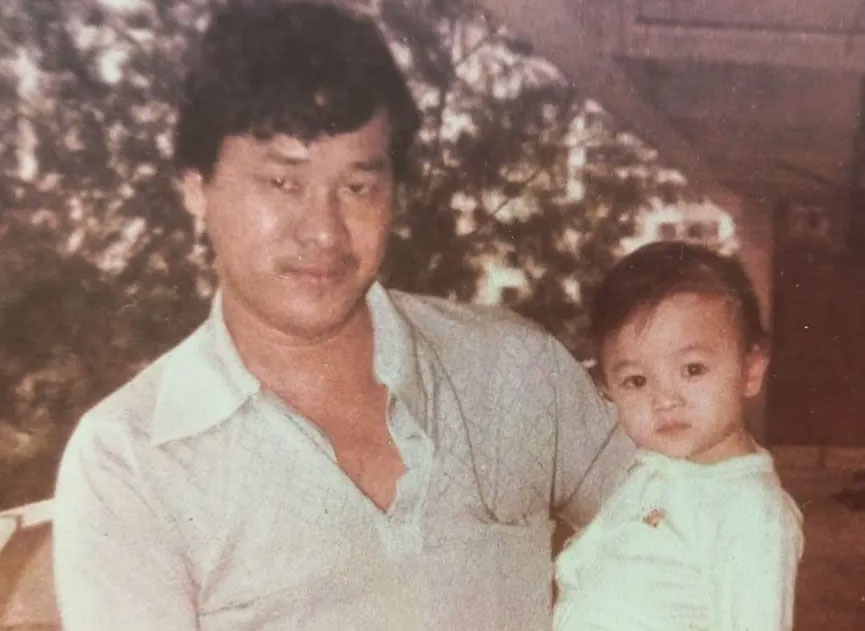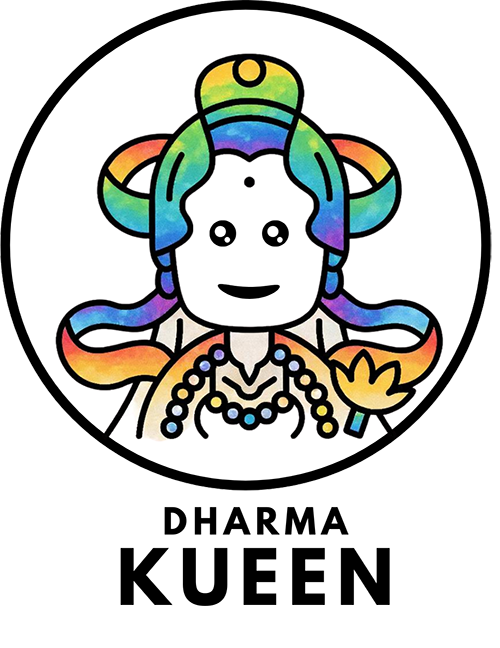
When my immune system was wrecked post-cancer, I couldn’t even be near my dad as he battled pneumonia. Imagine loving someone so much and not being able to hug them goodbye?
That’s grief with extra salt in the wound. And honestly? It’s brutal. And let’s not sugarcoat it: death is a selfish b*tch. It doesn’t care if you’re young, old, ready, not ready, Beyoncé, or basic.
She doesn’t RSVP, she just shows up, flips the table, and leaves the rest of us to clean up the emotional mess.
Death in the Buddha’s Storytime: Kisa Gotami
The Buddha had a way of turning heartbreak into wisdom bombs. Remember Kisa Gotami? Her only child died, and she lost it—carrying his body, begging strangers to bring him back. An old man sent her to the Buddha, hoping for a miracle.
And what did the Buddha do? He told her to find mustard seeds from a house untouched by death. Spoiler: every house had a loss. Realization hit her harder than RuPaul’s shade—no one is exempt. Death comes for everyone.
So why did the Buddha give her an impossible task? Because grief starts with denial. And only by facing the impossible could Kisa Gotami crack open to the truth: we’re all in this club. Nobody opted in, but everybody’s on the list.
Closure Is Overrated
“Closure” is one of those words people toss at you when they don’t know what else to say. But here’s the tea: closure is a scam. You don’t close the door on love. You don’t slam shut the memory of someone who shaped you.
What Buddhism offers isn’t closure—it’s clarity. The clarity to say: this hurts, it will always hurt, but my relationship to this hurt can change.
As Martha Beck put it: “Grief is like a stream running through our life… it doesn’t go away, but our relationship to it changes.”
Dhamma: The Therapist Who Doesn’t Bill You
Buddhism doesn’t hand you platitudes like, “Time heals all wounds.” Instead, it gives you tools. The Dhamma says: there’s no right or wrong way to grieve. Cry, travel, work nonstop, binge Netflix, or see a psychiatrist—your process is valid.
But also? Don’t stop there. Use grief as an invitation to expand. Read the teachings on impermanence. Sit with the reality that all things—good, bad, and messy—are temporary. That’s not depressing; it’s liberating.
✨ Insight: Life isn’t measured by how long it lasted but by the impact it left. Your loved one’s story is bigger than their ending.
Metamorphosis: Death in Drag
Think of a caterpillar. When it transforms, no other caterpillar cries, “Oh no, she’s gone!” They know metamorphosis is just part of the gig. That’s death—it’s not punishment, it’s nature flipping the script.
But grief makes us selfish. We clutch, we wail, we say, “Mine!” as if people belong to us. Truth is, they don’t. They belong to the world, to impermanence, to the cycle itself. And one day, we’ll join them. We’ll be someone’s ancestor.
The Gift of Awakening
Kisa Gotami’s despair became her doorway to enlightenment. She realized what we all must: grief doesn’t end, but it can transform. From grasping to letting go. From despair to compassion. From “why me” to “me too.”
And if she could turn grief into wisdom, so can we. Every loss carries the potential to soften us, sharpen us, and maybe—even awaken us.
Dhamma: The Therapist Who Doesn’t Bill You
Buddhism doesn’t hand you platitudes like, “Time heals all wounds.” Instead, it gives you tools. The Dhamma says: there’s no right or wrong way to grieve. Cry, travel, work nonstop, binge Netflix, or see a psychiatrist—your process is valid.
But also? Don’t stop there. Use grief as an invitation to expand. Read the teachings on impermanence. Sit with the reality that all things—good, bad, and messy—are temporary. That’s not depressing; it’s liberating.
✨ Insight: Life isn’t measured by how long it lasted but by the impact it left. Your loved one’s story is bigger than their ending.
Metamorphosis: Death in Drag
Think of a caterpillar. When it transforms, no other caterpillar cries, “Oh no, she’s gone!” They know metamorphosis is just part of the gig. That’s death—it’s not punishment, it’s nature flipping the script.
But grief makes us selfish. We clutch, we wail, we say, “Mine!” as if people belong to us. Truth is, they don’t. They belong to the world, to impermanence, to the cycle itself. And one day, we’ll join them. We’ll be someone’s ancestor.
The Gift of Awakening
Kisa Gotami’s despair became her doorway to enlightenment. She realized what we all must: grief doesn’t end, but it can transform. From grasping to letting go. From despair to compassion. From “why me” to “me too.”
And if she could turn grief into wisdom, so can we. Every loss carries the potential to soften us, sharpen us, and maybe—even awaken us.
Poem for the Brokenhearted
Once upon a time,
Birth and Death were lovers.
Never apart, always entwined.
But one day, Life came between them.
Still, like all great romances,
they will meet again.
Because they always belong together.
Birth & Death are inseparable.
💔 Grief may eat us alive, but Buddhism reminds us: it doesn’t have to be the end of the story. We can hold the pain, honor the love, and still grow into something new.




